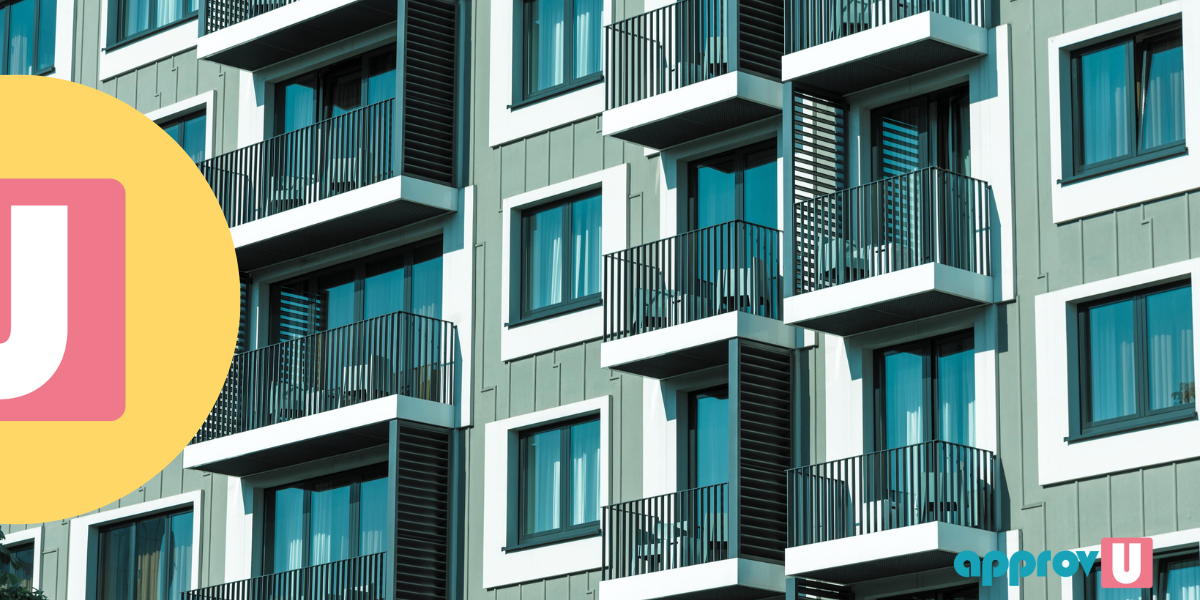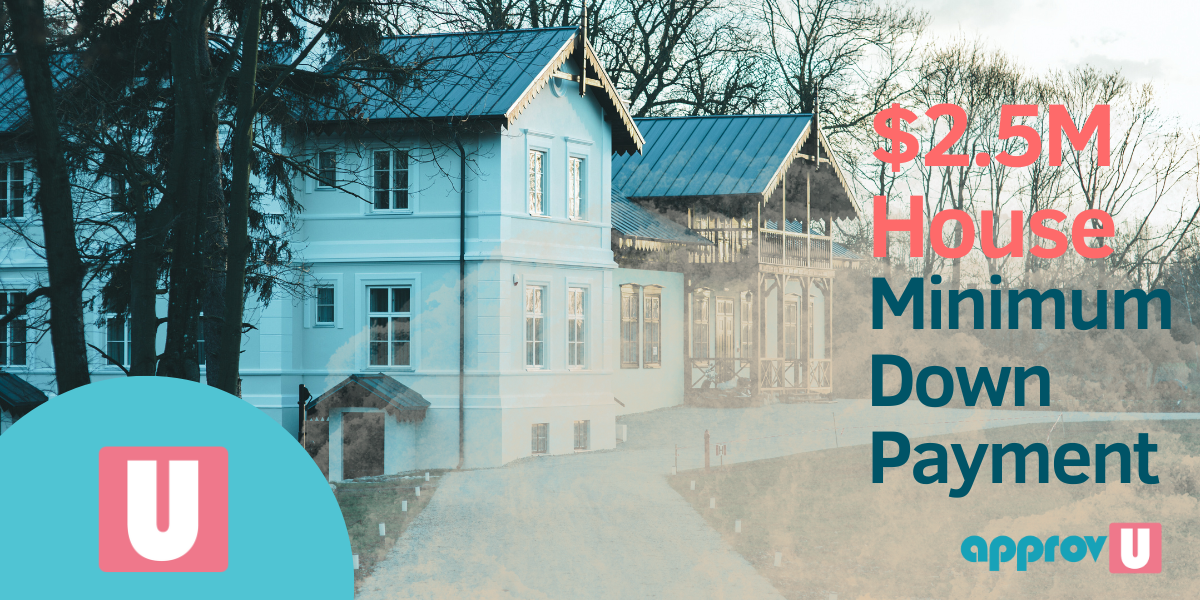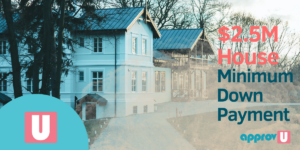Are you thinking about buying a condo in Canada?
This type of housing is popular among both first-time buyers and downsizers.
However, before you take the plunge, there are several things to consider, such as legal issues, financing options, and the differences between condos and other housing types.
In this guide, we’ll take a deep dive into everything you need to know about buying a condo in Canada.
But what exactly is a condo?
Let’s get into it!
This article is part of our complete guide to the Best Types Of Houses In Canada For Mortgage Financing.
What is a Condo?
A condo, short for condominium, is a type of housing ownership where the resident owns the individual unit.
In contrast, common areas, such as hallways, elevators, and amenities, are owned and maintained collectively by a condominium association comprising all the unit owners.
Condos come in various forms, including apartments, townhouses, and detached homes, and offer a low-maintenance lifestyle and access to shared amenities.
Condo ownership in Canada involves paying a monthly fee to cover the maintenance and upkeep of common areas and building amenities.
Condos vs. Apartments: Understand the Differences
Apartments and condos are similar since they are found within a residential building, but the latter is usually owned while the former is rented.
Other differences between them include the following:
Upfront Costs
Regarding upfront costs, renting an apartment is the more affordable option.
Typically, the first and last month’s rent is all you have to pay when renting an apartment.
Purchasing a condo involves more than a down payment; additional costs like closing fees, land transfer tax, lawyer fees, and appraisal fees must also be considered. It’s important to factor in these costs when planning your budget for a condo.
These costs can add up, making the upfront cost of buying a condo significantly higher than just renting an apartment.
Maintenance
Whether you buy a condo or rent an apartment, you’ll have to deal with maintenance issues.
It could be something small like a leaky sink or a running toilet.
If you own a condo, your monthly condo fee may cover some of the maintenance expenses, but if not, you’ll have to pay for them out of your pocket.
On the other hand, with apartment rentals, maintenance is on the landlord.
So, you won’t have to worry about paying for repairs as a renter.
Customizing your Unit
When personalizing your living space, owning a condo has some advantages.
With a condo, you can change the wall colour, upgrade appliances, or even replace the countertops and kitchen cabinets to make them feel like your own.
However, your customization options may be limited if you rent an apartment.
You likely won’t be able to make any major changes to the unit, so it’s important to consider this if you value the ability to personalize your living space.
Condos vs. Detached/Semi-Detached Houses: Understand the Differences
A detached or semi-detached house is a standalone residential building, not part of a multi-floor complex like a high-rise or low-rise condo.
They are often referred to as single-family houses.
Maintenance
When it comes to maintenance, owning a detached or semi-detached house means you’re responsible for caring for the inside and outside of the property.
If you own a condo, the situation is different.
You’re responsible for maintaining the components inside your unit, but anything outside of it is the responsibility of the condo board.
Owning a condo may be better if you want fewer maintenance responsibilities.
Affordability
Regarding affordability, it’s generally true that detached and semi-detached houses are more expensive than condos.
However, the exact difference in price between a single-family house and a condo unit can vary widely based on many factors.
These factors include the property’s location, size, and design elements it includes.
So, while it’s true that detached and semi-detached houses tend to be more expensive, the specific differences in price will vary based on various factors.
It’s important to remember this as you consider which type of property is right for you.
Community
When it comes to community living, owning a condo differs slightly from owning a single-family house.
With a condo, you’re automatically part of a community of complex unit owners, and the decisions made by that community can impact your life and well-being.
There’s a shared responsibility for maintaining a sense of community in a condo complex.
However, with a single-family house, you might have a different sense of community.
There needs to be shared responsibility for maintaining a community environment; living outside a subdivision may isolate your living experience.
Privacy
Owning a condo and a single-family house has pros and cons regarding privacy. A condo can be a good choice for those who value community.
However, living in a condo means sharing walls with your neighbours, which can lead to a lack of privacy.
On the other hand, a single-family house offers more privacy.
With neighbours staying farther away from your property walls, privacy is generally not a concern for most house owners.
Fees and Ease of Selling
With fees and ease of selling, condos and single-family houses have unique considerations.
Condos are typically managed by a governing body, such as a condo board, that charges monthly fees to cover the costs of maintaining shared amenities and other management expenses.
It’s essential to keep these fees in mind when considering buying a condo.
On the other hand, single-family houses are not part of any associations, so owners don’t have to worry about paying monthly fees.
However, selling a house can be more complex than selling a condo and may involve more steps, such as staging the property and negotiating with buyers.
Condo vs. Townhouse: Understand the Differences
If you’re considering purchasing a multi-floor home, you might wonder about the differences between a condo and a townhouse.
A townhouse typically has 1-2 shared walls with adjacent properties, but each unit has its own entrance.
Townhouses in suburban areas often have a uniform design and a sense of community.
Most townhouses are 2-3 stories tall and don’t have units above or below. How does this compare to a condo? Let’s find out.
Ownership Structure
There are two main ownership structures of a townhouse – freehold and leasehold.
With leasehold ownership, you own the house and the structure but not the land on which the home sits.
You have the full right to live on the property, provided you make a timely mortgage payment.
The operation of a leasehold property is similar to that of a condominium. You are required to pay a fee for the common elements, which include the leased land.
On the other hand, the Freehold townhouse has no typical element payment.
You own both the house and the land on which it sits. You are responsible for everything related to your property, including the possessions inside, the walls, the pathway, and the roof.
There is likely no payment for common elements.
A condominium township ownership resembles that of any other condo.
However, the fee-simple ownership requires you to maintain your home and the front, side, and backyards.
Privacy
Condominium living often compromises privacy, as residents share walls with neighbours and live nearby.
In contrast, townhouses typically offer more privacy as they usually come with their front and back yards, creating a more secluded and intimate living space.
A townhouse may be better for you if you seek a more affordable housing option with greater privacy than a condo complex.
Restrictions
Condominiums have more regulations that owners must abide by. This includes rules and restrictions set by the housing complex.
In comparison, townhouses have fewer regulations.
Owners have more freedom to personalize their yards and choose their landscaping design.
Affordability and Fees
The cost of the property is an essential factor when buying a home. Compared to detached or semi-detached houses, condos and townhouses are more affordable.
However, condos are generally cheaper to purchase than townhouses.
Additionally, the property tax and insurance fees for condos are lower than those for townhouses.
Pros and Cons of Buying a Condo
Before purchasing a condo, it’s essential to understand its advantages and disadvantages.
A condo offers several benefits, but it’s also essential to be aware of its drawbacks.
This overview will highlight the key pros and cons of owning a condo.
Pros of Buying a Condo
- Access to a wide range of amenities: Condominiums often come with shared amenities, such as swimming pools, fitness centers, parks, and recreation rooms, that are typically not available in single-family homes. The condominium association maintains and pays for these amenities, freeing homeowners from the burden of upkeep and maintenance.
- Low-maintenance living: Owning a condo often means having fewer maintenance responsibilities than a single-family home. This means you won’t have to worry about lawn care, exterior maintenance, or roof repair. This can be particularly beneficial for people with busy schedules, those who cannot handle physically demanding tasks or those who prefer a lower-maintenance lifestyle.
- Offers a sense of community and socialization opportunities: Living in a condominium can allow residents to interact with their neighbours and form a sense of community. Many condominium buildings offer social activities and events, such as potlucks, book clubs, and other community gatherings.
- Provides a sense of security: Many condominium buildings offer security features such as gated entry, security guards, or monitored entryways, providing residents with a sense of safety and peace of mind. This can be especially appealing for those living alone, families with young children, or people concerned about neighbourhood safety.
- More affordable than a house or townhouse: Condos are more affordable than single-family homes or townhouses, making them an attractive option for first-time buyers or those looking to downsize. They may also be a more affordable option for those looking to purchase a home in a desirable area that would otherwise be out of their price range.
Cons of Buying a Condo
- Lack of privacy in a shared building: Living in a condominium means sharing common areas and walls with neighbours. This can result in a lack of privacy and noise issues, especially if you have loud or inconsiderate neighbours. This lack of privacy can also impact your personal life and make it difficult to entertain guests.
- Restrictive rental policies: Many condominium associations have strict rental guidelines, limiting the ability of owners to rent out their units. This can disadvantage those looking for a rental investment or those considering renting out their unit. It’s important to check the rules and regulations of the condominium association before making a purchase.
- Investment risk: Investing in a condominium can be risky, especially if the real estate market experiences a downturn. The value of your condominium can also be impacted by factors such as changes in the local housing market, changes in the local economy, or issues with the condominium building itself.
- Increasing condo fees: Condominium fees, which cover the cost of maintaining common areas and building amenities, can increase over time. This can impact your monthly budget and make it difficult to keep up with payments, especially if you are on a fixed income.
- Limited outdoor space: Living in a condominium typically means having limited outdoor space, such as a small balcony or no outdoor space. This can disadvantage those who enjoy gardening, outdoor activities or having pets. This limited outdoor space can make entertaining guests or hosting outdoor events difficult.
Conclusion
Buying a condo in Canada can offer many benefits, such as access to a wide range of amenities, low-maintenance living, and a sense of community and security.
However, there are several drawbacks, such as more privacy in a shared building, restrictive rental policies, investment risk, increasing condo fees, and limited outdoor space.
When buying a condo, weighing the pros and cons and determining whether it is the right choice for your personal and financial situation is essential.
Before making a purchase, it’s also crucial to thoroughly research the condominium building and its association and the local housing market to ensure that you are making a well-informed decision.
Other House Types to Consider for Mortgage
| Multiple Family Home | A Mortgage Guide for Multiple Family Home Buying and Investing |
| Single-Family House | How To Buy A Single-Family House With A Mortgage |
| Townhouse | Buying a Townhouse with Mortgage: Step-by-Step Guide |
















